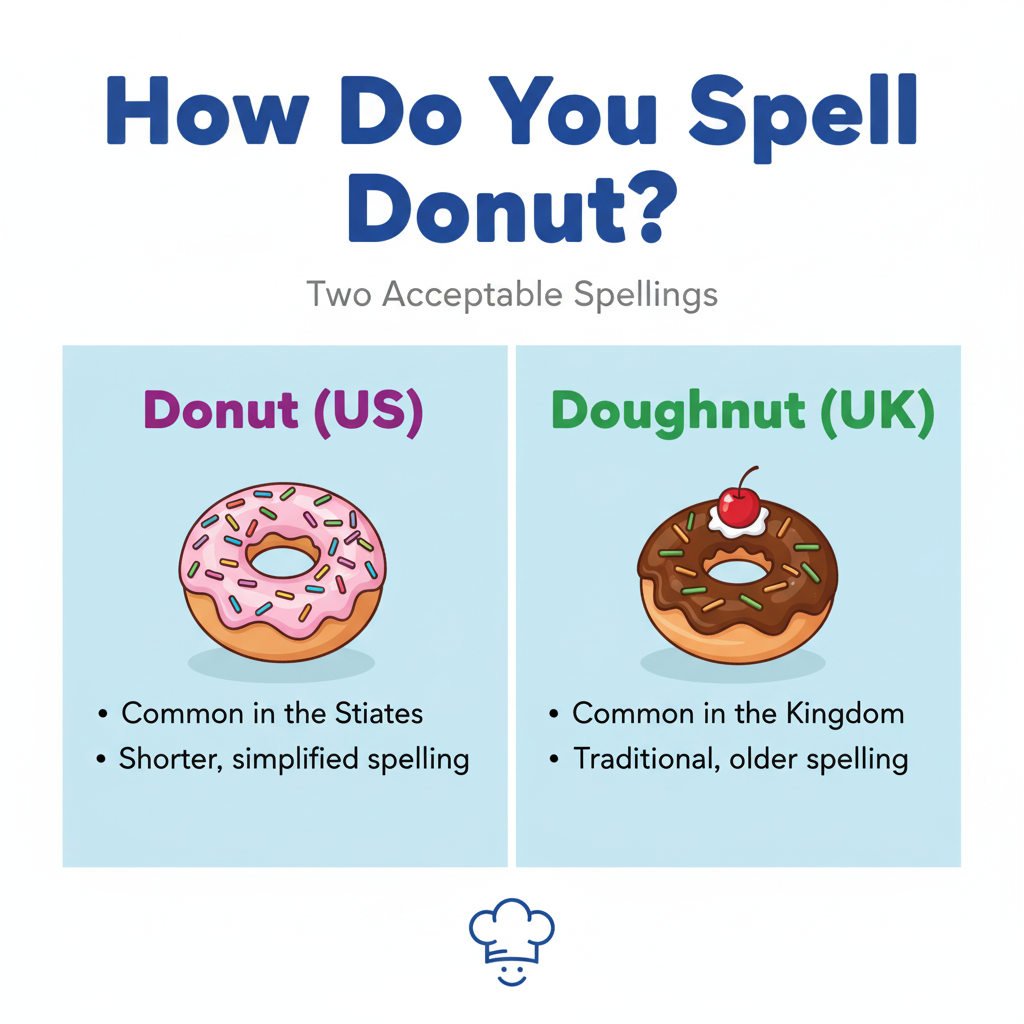How to Spell Donut (or Doughnut) the Right Way

English spelling can be tricky, and “donut” vs. “doughnut” is one of those confusing pairs.
When you see two different spellings of the same word, it’s normal to wonder which one is correct.
That’s what Midoo AI is here for—helping you clear up these little word puzzles so your writing is always confident and clear.
The Original Spelling: “Doughnut”
“Doughnut” is the original and traditional spelling.
- It comes from two words: dough (the mixture used to make bread) + nut (because the first doughnuts were small and nut-shaped).
- This is the spelling you’ll see in formal writing, books, newspapers, and older recipes.
Example:
I bought a box of chocolate doughnuts for the office.
The Modern Spelling: “Donut”
“Donut” is a shortened, modern spelling that became popular in the United States, especially thanks to the brand Dunkin’ Donuts.
- It’s simpler and faster to write.
- It’s very common in everyday casual writing, ads, and menus.
- It’s also accepted as correct in American English.
Example:
Let’s grab a coffee and a donut on the way to work.
Which One Should You Use?
- Use “doughnut” in formal or academic writing to stay traditional.
- Use “donut” in casual writing, social media, or when talking about the food in a friendly way.
- Both spellings are correct, but “doughnut” is more formal and “donut” is more casual and American.
Quick Tip from Midoo AI
If you’re ever unsure which spelling fits your sentence, ask Midoo AI to check your tone.
It can instantly suggest whether “doughnut” (formal) or “donut” (casual) sounds better for your audience.
FAQs
Q: Is “donut” wrong spelling?
A: No, it’s not wrong. It’s just a more casual, American version of “doughnut.”
Q: Which spelling is used in British English?
A: British English usually uses “doughnut.”
Q: Can I use “donut” in formal writing?
A: It’s better to use “doughnut” in formal writing, but “donut” is fine for casual or creative writing.
Q: Why are they called doughnuts?
A: Early doughnuts were small balls of dough shaped like nuts—hence the name “doughnut.”